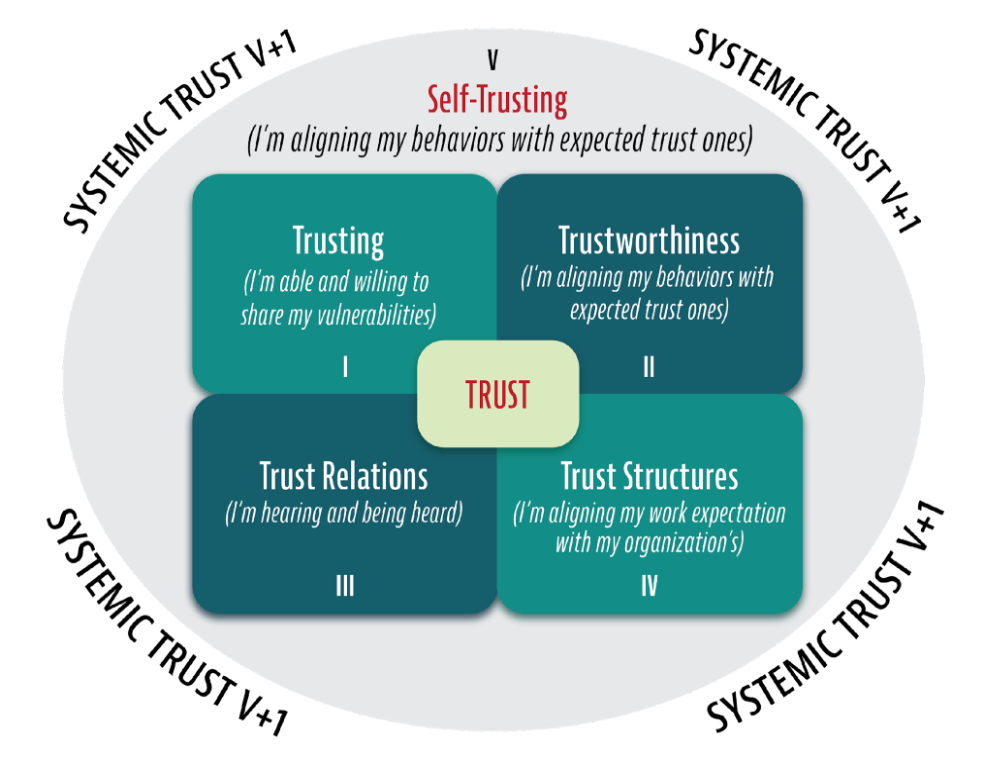Self-reliance is self-trust, according to Ralph Waldon Emerson.
I’ve read Emerson’s essay, “Self-Reliance” (1841) several times as a student and an adult. But, two days ago (September 9, 2022) was the first time I revisited his essay since we published our book, Making Trust Happen! (January 6, 2022).
I was pleasantly surprised at how much our “self-awareness trust” concept tacked to Emerson’s ideas.
Were we “channeling” Emerson?
For example, in our blog “Making Self-Awareness-Based Trust Happen,” we wrote:
Self-trust is an “awareness” concept of “trust.” When I’m self-trusting, I’m engaging in practices that deepen my understanding of who I am. Also, I’ve expanded my insight of who or what I’m not. I know what it means to be authentic. I show up with “agency.”
Our trust model distinguishes between “self-trusting” and “trusting.” We noted that:
When I’m “trusting,” I’m willing and able to share my vulnerabilities, which takes the form of “sharing personal stories” with co-workers. “Trusting” is about getting to know one another.
On the other hand, “self-trusting,”
focuses on getting to know our selves and showing up as ourselves in the workplace.
Self-trusting and trusting are two of the six dimensions of trust we explore in our book. The other four are trustworthiness, trust relationships, trust structures, and systemic trust.

For Emerson, at a point in our development, we realize that it’s no longer helpful to “rely” on the thoughts of others. That’s when we begin to rely on ourselves. That’s when we become “self-reliant.” We recognize and manifest an Inner Truth.
Consequently, when we map our concept of “self-awareness-based trust” to Emerson’s idea of self-reliance (self-trust), we also see that Emerson’s concept of “self-trust” is also like our concept of trustworthiness. Two terms we relate to “trustworthiness” are “congruence” and “reliability.” So a dimension of Emerson’s self-trust is self-trustworthiness.
With that in mind, when we’re self-trusting, we’re congruent with our universal inner voice and comfortable listening to and depending on it. Furthermore, we prefer our voice over the voices that culture and society impose on us.
“There is a time in every man’s life,” Emerson writes.
when he arrives at the conviction that envy is ignorance; that imitation is suicide; that he must take himself for better for worse at his portion; that though the wide universe is full of good, no kernel of nourishing corn can come to him but through his toil bestowed on that plot of ground which is given to him to till.
Emerson focused on how conforming to society dictates can be deadening, particularly with the rising commercialization and industrialization in the United States in the 1840s.
The journalist, Edith Cooper, frames a current version of this when she shares a question a potential employee asked her during an interview: “Can I bring my whole self to work.” (See our blog “Trust & Returning To The Office.” )
Emerson’s concept of self-reliance embodies several of our trust dimensions. Why not? If there are universal truths, people will discover and re-discover them.
So, following Emerson’s footsteps, when it comes to “self-trust,” Think: Agency and Authenticity. Show up for yourself, others, and your world with agency and authenticity.
“Trust thy self,” Emerson beseeches. That is become “self-reliant.” That way, you can hold onto conformity with yourself instead of conformity with the world.
We say: Make self-awareness-based trust happen. And when we do, “ease of being” permeates our organizations and us.
